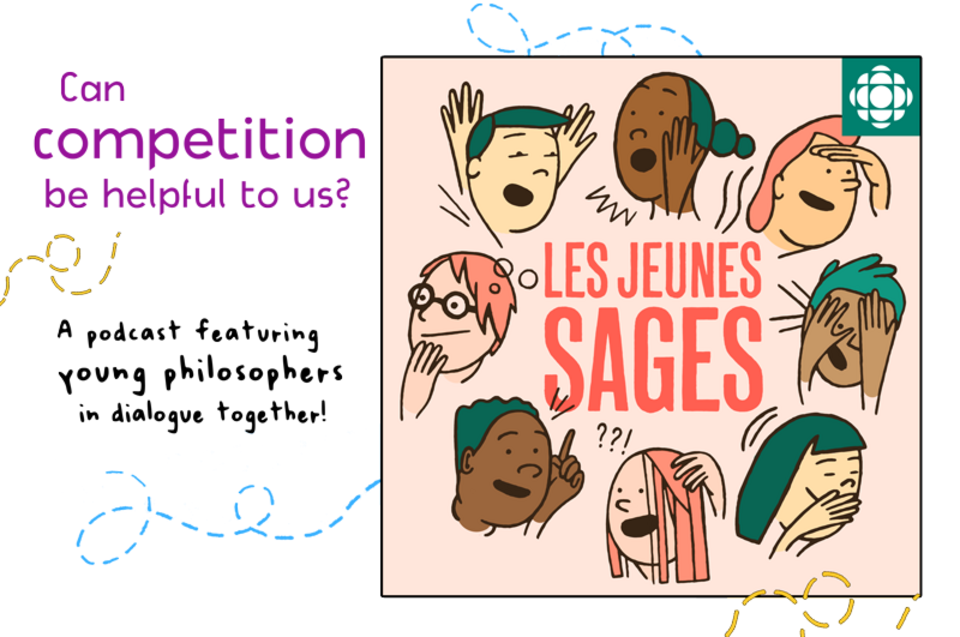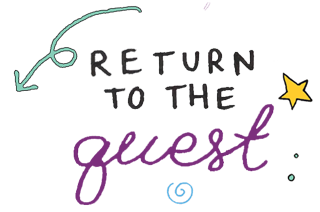
Help wanted! Or is it…?
| Objective: To feed your philosophical thoughts on help with the guidance of your family during lunch! |
Duration : 30 to 75 minutes
Material :
-
Sheets of paper and pen
-
Coloured pencils and markers
-
Your family
Instructions :
It's time to eat! Gather your family around the table for a collaborative dialogue about help. Explore the following questions, finding inspiration in the thinking prompts as necessary. Together, think of reasons to explain your positions and try to build an answer by combining your ideas! But don't worry if the urge to keep talking doesn't subside... philosophical picnics are an insatiable quest!
...
- Question 1: Is helping always good?
- Thinking prompts : We’re often told to “lend a helping hand,” as if it’s necessarily the right thing to do, no matter the circumstances. But could it be that helping isn’t always… helpful? If so, what does that say about the concept of help? Think back to the definition you came up with in your first Idea Stretching mission, and share it with your family. Then, together, try to identify some situations where helping others would not be good at all. What might be some consequences of “bad” helping? And how on earth can we tell the difference between good and bad types of help? Imagine the curious alien who just wants to understand how things work in our world—what tips might you offer to help make these categories of help easier to recognize? Here’s a fun trick: find a bunch of ways that we use the word “help” in our expressions, like: We can’t “help” but notice that we are always “helping” ourselves to more dessert because loving a sweet treat, well… it truly can’t be “helped!” Is this a cry for “help?” So “help” us, sugar gods! Quick, call a “help” line! Every little bit will “help”…
-
Question 2: If we ask for help, does that make us weak?
- Thinking prompts: When we are in need, it can seem natural to ask for support to make our situation easier. But is requiring help a sign that we just aren’t strong enough to handle things ourselves? Would we be better off staying independent than admitting we need assistance? Or, on the contrary, is asking for help the brave thing to do? With your family, share some moments from your own life when you felt weak asking for help, and others when you felt strong. What was different and similar about these instances? Now push your thinking even further by imagining a person who always asks for help and another who never does. Whose life do you think is better overall? Hmm… maybe it depends on whether they feel comfortable receiving help…
- Question 3: Should we help those who do not want our help?
- Thinking prompts: Asking for help is one thing… but what about giving help? What could possibly be wrong with that? With your family, play with this idea by picturing a person who hates receiving help of all kinds—they wince, get offended and storm off angrily. What might be their reasons for refusing what seems like a positive show of support? Now think about your own life: do you prefer being the helper (the one who helps) or the helpee (the one being helped). Together, share some examples and try to figure out your reasons. What does it really mean to be helpful? What about being helpless? Hmm… maybe when help is unwelcome, it changes how the experience feels… but what about in an emergency? Is it ever okay to force our help on someone? Try to finish the sentence: If help didn't exist, then _________.
...
Bonus : When do you feel most helpful? Is it when you’re volunteering, putting your skills to good use, or coming to the aid of someone in trouble? As a family, discover your inner super-helpers by making some “contribution coupons!” Think of all the ways you can help out—whether at home, in your community or in the world—and how you might represent these helpful deeds through little drawings and cool titles. Then cut up some pieces of paper, and draw one deed per piece, using lots of colour and decorative details! Who in your life should get a coupon? A family member, a friend, a neighbour, a stranger, a pet… yourself? Once you’ve decided who should get your contribution coupons, imagine together what kind of impact they might have! Will everyone be happy and grateful for your help? Why or why not? Perhaps some people will react negatively or even refuse your coupon… but why might they do that? Are some people more worthy of your coupons than others? How could that be? |

| Tricks for tots : Just because we’re little, it doesn’t necessarily mean we need help! At least not with everything. Think about all the things you can now do on your own without any help at all, then draw each thing on its own slip of paper. When you’re done, put the slips into a container—your very own, Just-Me Jar! Show your jar to your family, and ask them to guess what’s inside. If they need help guessing, you can act out one of the drawings—you pretending to do something without needing help! What else might you add to the jar if you try hard enough? See if you can add a new drawing in the next week… and if your family can guess what your new just-me addition is! How does it feel to do more things with less help? |
| Tips for teens : Parlez-vous français ? As you prepare your meal or digest your feast of delicacies and tasty ideas, listen to the Les jeunes sages podcast on competition. Drawing inspiration from the reflections of the young philosophers, try to answer the question: Does competition make us better? Some might say that if we’re not helping one another, we’re competing against each other, as if the former is better than the latter. But do you agree? Can competition be positive? If so, are all kinds of competition helpful? Why or why not? Where should we draw the line? What are other angles of the concept of competition that deserve to be explored? If you can’t understand French, don’t worry! You can still wonder about the question! You can even imagine that you are recording a podcast with your family… Family Wisdom! |
Share your creative reflections by sending them via email.
Include photos of your projects and notes of your thoughts, as well as your first name and your age!


